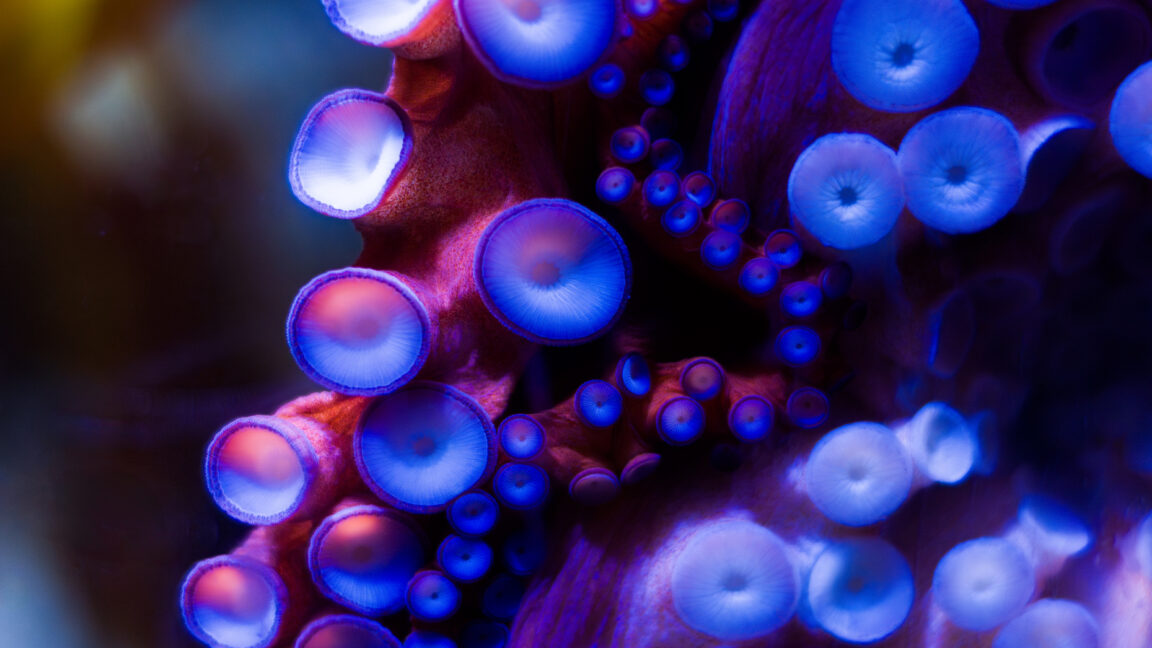
"Yue and his team created a sucker that was morphologically and mechanically similar to that of an octopus, eliminating gaps and leakage for better adhesion."
"This sucker simulates the mucus secretion of octopus suckers, using an artificial fluidic system to create a liquid seal between the sucker and the surface."
"Mucus secretion was mostly overlooked until Yue decided to incorporate it into his robo-suckers, enhancing their ability to grip surfaces without leakage."
"Mollusk mucus is known to be five times more viscous than water, allowing for a more secure and reliable adhesion in underwater environments."
Yue and his research team developed robotic suckers inspired by octopus physiology, effectively addressing issues of leakage and adhesion. By simulating the flexible morphology and mucus production of octopuses, their design utilizes a silicone sponge and an artificial fluidic system that mimics the viscous secretions of octopus suckers. This innovation allows for a reliable grip, enabling the suckers to effectively adapt to various surfaces, especially advantageous in underwater explorations. Their work demonstrates a significant leap toward biological mimicry in robotics.
Read at Ars Technica
Unable to calculate read time
Collection
[
|
...
]